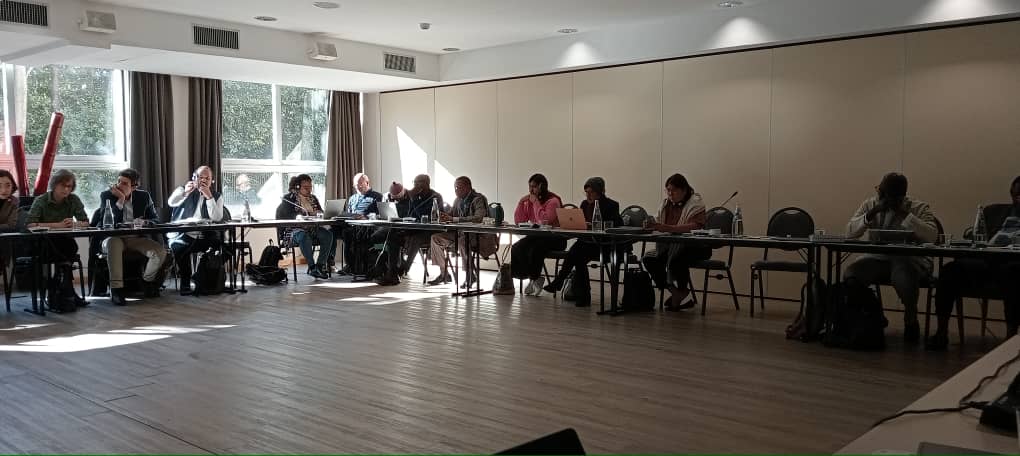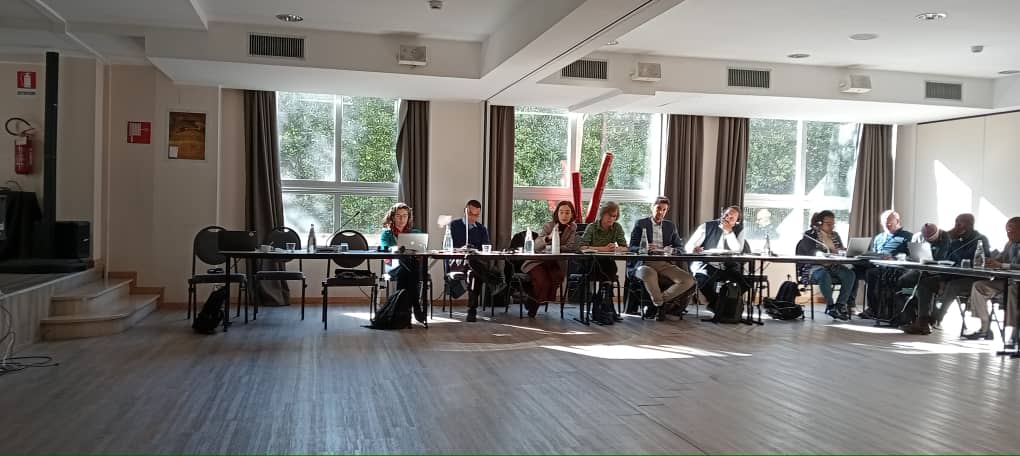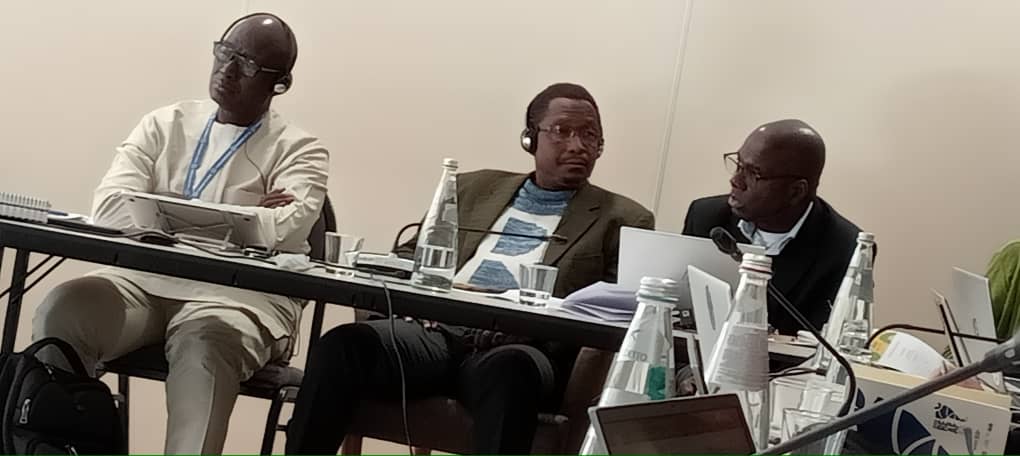
Key stakeholders from Faremrs Organizations (FO), IFAD, donors, and partners gathered, in Rome, during an inaugural session marking the launch of the evaluation process for Regional Support Programs for FOs (FO4). This meeting, characterized by strong commitment and a shared vision, paved the way for a collaborative and constructive evaluation. Discussions focused on an exchange of best practices, innovations, and the identification of priorities, challenges, and recommendations for the future. The meeting brought together financial partners such as the European Union and the African, Caribbean, and Pacific States (ACP).
Plenary session: Results and lessons learned from regional FO support programs
This session provided an opportunity to present the overall results obtained following the implementation of the regional projects (FO4CAP, FO4A, FO4LA, GAFSP). The FO projects have enabled FOs to develop economic services for the benefit of their members through the financing of business plans and the establishment of mechanisms to facilitate access to markets, inputs and financing.
In terms of political dialogue, FOs have improved their participation in the process of drafting and implementing agricultural laws and policies. They now have a great capacity for influence and have become essential players at national, regional and international level. Farmers’ organisations have also shown their resilience and their key role in helping their members to manage the Covid-19 crisis.

With these results, FOs have proved that if financial ressources go to producers directly, they are able to solve the problem of food security. This is why, in Africa, they must :
- Mobilising resources that the heads of state have decided to allocate to agriculture (Malabo Declaration);
- Extending IFAD’s advocacy efforts to the FAO and WFP;
- Advocating the application of the various voluntary directives;
- Go on conquering the political arena to persuade leaders to provide small producers with the resources they need, because development is the responsibility of the State;
- Ensure that farmers earn a living from their work;
The European Union, which has funded most of the FO support projects, believes that FOs have a key role to play in agricultural transition. To enable them to play this role effectively, it is important to strengthen FOs to equip them with the necessary capacities. The EU remains open to providing assistance over the coming years.
Throughout this session, FOs shared their feedback, identified key steps, and collectively reflected with partners on successful experiences and challenges to overcome. This fruitful exchange not only highlighted successes but also identified opportunities for improvement, laying the groundwork for a more robust strategy for the future. This meeting represents more than a mere evaluation; it is an opportunity to co-create innovative solutions and chart the course towards an even more significant impact.
The power of collaboration is evident through essential viewpoints emerging within this assembly. Animated and constructive discussions form the backbone for shaping the future of initiatives in support of Farmer Organizations. Sustainable results are at the core of concerns, and this evaluation marks a renewed commitment to this goal.
The meeting also served as an opportunity to present the working methodology for the evaluation of FO4 programs, with IFAD consultants. This will involve sharing basic data, ensuring consultant support to consolidate databases, and finalizing data by FOs. Finally, a regional workshop is planned for late April 2024 to analyze the data and plan the next phase of the project. This collaboration among key stakeholders, supported by the richness of shared exchanges and ideas, demonstrates collective determination to create a positive impact and ensure sustainable outcomes for rural communities.

Mr. Ibrahima Coulibaly, President of PAFO, underscored the crucial importance of specific policies to address structural issues affecting farmers, emphasizing the need for policies ensuring income predictability. He noted that farmer organizations (FOs) have successfully implemented pilot operations in collaboration with IFAD, demonstrating their capacity to innovate and improve farmers’ livelihoods.






